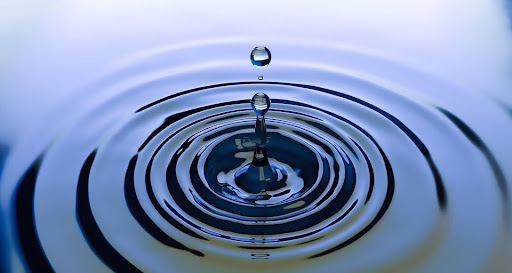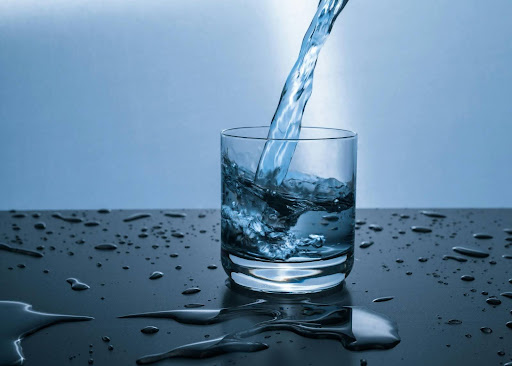
Do You Need to Drink 8 Glasses of Water a Day? Understanding Health & Hydration
Growing up, we often heard that drinking eight glasses of water a day was the golden rule for staying well-hydrated. But, is this one-size-fits-all guideline truly accurate?
The actual amount of water each person needs can vary significantly and can depend on gender, body size, lifestyle, and geographic location.
Staying hydrated is essential for good health but, just how much water is the right amount to keep you healthy?
How Much Water Should You Drink Every Day?
Your daily water intake depends on several factors and is not restricted to eight glasses a day. The amounts are different for men and women with body weight, diet, daily activities, stage of life, and overall health also playing a role in determining the right quantity for you.
Generally, men should aim for about 3.7 liters of fluids a day while women should target around 2.7 liters. This total includes water, other drinks, and the moisture in your food. If you’re curious about the specific amount of water that's best for you, you could consider consulting a dietician.
For those pursuing a career in health, understanding hydration needs is important and can be learned while following DNP programs online, a Bachelor of Nursing, NP programs, and other healthcare qualifications.
Why Does the Body Need Water?
Our bodies depend on water to survive. It makes up the majority of our body weight and every cell in our body needs water; without it, our bodies can’t function properly.
These are the reasons why water is so important:
- It helps flush out toxins from our body through sweat, urine, and bowel movements and prevents constipation.
- It keeps our body temperature stable.
- It acts as a lubricant and cushion for our joints.
- It protects delicate tissues, including the spinal cord.
- It’s essential for creating saliva, which aids in breaking down food and swallowing.
- It plays a key role in absorbing nutrients, dissolving vitamins and minerals, and carrying them throughout the body.
Besides these vital functions, staying hydrated has other benefits. Drinking a sufficient amount of water can help with weight loss, fighting off illnesses, boosting energy, improving mood, and keeping your skin looking healthy and bright.
What are the Signs of Dehydration?
If your body doesn't have enough fluid, it can't function properly and you will start to see signs of dehydration. These symptoms can be mild, moderate, or severe depending on how much fluid your body is missing.
As you lose water through sweating, saliva, urinating, vomiting, or even crying, it's important that you replace this water to avoid dehydration.
These are the signs of mild or moderate dehydration:
- A strong thirst and a dry, sticky feeling in your mouth.
- Not urinating much.
- Dark, yellow urine.
- Headaches and muscle cramps.
- Having a lower than normal blood pressure.
- Loss of appetite.
- Constipation.
- A lack of sweating.
These are the signs of severe dehydration:
- Very little or no urine, which is a deep yellow color.
- Feeling lightheaded or dizzy.
- A rapid heartbeat.
- Confusion.
- Fainting.
- Seizures.
- Kidney stones.
Drinking enough water is more important than food intake and is essential for your survival.

Can You Drink Too Much Water?
While it's rare, it is possible to drink too much water. If your kidneys can't remove the extra water fast enough, the sodium in your blood gets diluted, which can lead to a dangerous condition known as hyponatremia. To avoid this, drink water in small amounts regularly throughout the day, so you don't overwhelm your body.
How Do You Know if You’re Drinking Enough Water?
You’re drinking enough water if you don’t feel thirsty and your urine is a pale yellow color. Try to drink water regularly in small amounts throughout the day. This helps you stay hydrated.
Also, drinking water with meals is beneficial. It aids digestion by breaking down food, making it easier for your body to absorb nutrients. For those who do lots of sport, it's important to drink water before, during, and after your exercise routine.
Remember, feeling thirsty is your body's way of telling you it needs water.
Tips to Help You Drink More Water
If water isn’t your first choice when it comes to quenching your thirst, there are other healthy options such as:
- Herbal teas.
- Flavored or sparkling water.
- Fruit juices - some fruits contain more water than others such as watermelon and strawberries.
- Vegetable juices - lettuce, cucumber, and celery are full of water and have other nutritional benefits too.
- Coconut water.
Drinking soda isn’t a healthy option so if you drink it regularly try to alternate it with a glass of water. Also, try and get into the habit of drinking a glass at mealtimes and invest in a water bottle so you always have it to hand when you’re out and about.
Remember that alcohol dehydrates your body and is not counted as a fluid.
So, there's no one-size-fits-all measure of eight glasses a day and individual needs differ widely. Hydration is essential for our body to function correctly and recognizing signs of dehydration is vital.
Keeping informed about your specific hydration needs, possibly with professional advice, is the most effective strategy for maintaining good health and well-being.

Comments (0)